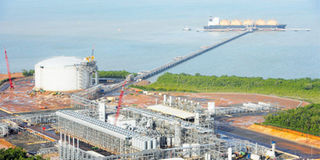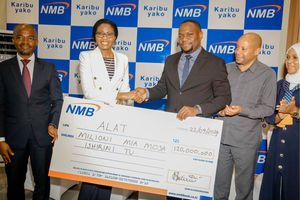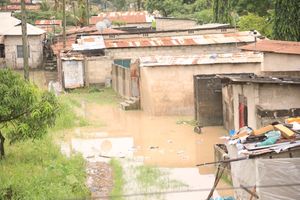$30bn natural gas plan enters important stage

A liquefied natural gas plant. The government and international oil companies are currently at a crucial stage of negotiations to set up a similar plant in Tanzania. PHOTO|FILE
What you need to know:
The government and a consortium of major oil companies that plan to invest in the giant liquefied natural gas project have kick-started negotiations that will pave the way for a sprawling facility on over 2,000 hectares of land in Lindi
ENERGY: BG Tanzania manager Patricia Mhondo told BusinessWeek that companies have done groundwork to establish the LNG commercial framework
Dar es Salaam. International oil companies engaged in the construction of a Sh67-trillion) $30-billion liquefied natural gas (LNG) project are establishing a commercial framework for the scheme, BusinessWeek has learnt.
The framework will define and compare alternative commercial and financial arrangements involving government and the private sector in a way that addresses the unique attributes of the project.
It basically outlines the rights and obligations of each party (between the government and the investors) in the process of executing major projects such as the LNG one.
BG Tanzania external relations manager Patricia Mhondo told BusinessWeek that the companies have done groundwork to establish the LNG commercial framework.
“The report has been submitted to the government and we are awaiting response,” she said.
The Statoil senior vice president and country manager for Tanzania, Mr Oystein Michelson, shared similar sentiments.
He noted that the job of bringing the gas onshore was difficult but noted that the companies were optimistic it could be done.
Reports show that the government announced it will conduct an environmental impact assessment (EIA) at Likong’o Village in Lindi Region where LNG Plant is to be built. Tanzania has found at least 55 trillion cubic feet of natural gas reserves.
BG Group - which was last year acquired by Royal Dutch Shell - along with Statoil, Exxon Mobil and Ophir Energy plan to build the onshore LNG export terminal in partnership with the Tanzania Petroleum Development Corporation (TPDC).
TPDC owns a title deed for the 2,071.705 hectares where the plant will be built while a further 17,000 hectares is set aside for construction of an industrial park.
Analysts are hopeful that the project is viable and that it will result into a number of opportunities for opportunities to Tanzanians and investors alike.
“The project only requires transparency and accountability…. people’s expectations should be checked and allowed at realistic level…. the government should fast track the construction of the project to ensure we enjoy the opportunities available,” said University of Dar es Salaam economics professor Haji Semboja.
Until 2014, it was estimated that the development of the LNG plant would create over 10,000 new direct jobs and thousands more indirectly.
It would also enable the country to collect billions in taxes which will help among other things, to service the national debt and fund healthcare and education.
Repoa strategic research director Abel Kinyondo was recently quoted as saying that when the gas is fully exploited it will contribute to only six per cent to the gross domestic product, suggesting that its impact would largely depend on its connectedness to other sectors.
“It will have to support other sectors that employ a majority of the country’s population like the manufacturing and agriculture for the impact to be huge,” he said.




